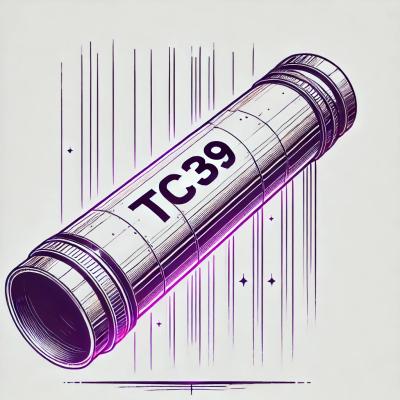
Security News
NVD Quietly Sweeps 100K+ CVEs Into a “Deferred” Black Hole
NVD now marks all pre-2018 CVEs as "Deferred," signaling it will no longer enrich older vulnerabilities, further eroding trust in its data.
pgvector support for Node.js and Bun (and TypeScript)
Supports node-postgres, Knex.js, Objection.js, Kysely, Sequelize, pg-promise, Prisma, Postgres.js, Slonik, TypeORM, MikroORM, and Drizzle ORM
Run:
npm install pgvector
And follow the instructions for your database library:
Or check out some examples:
COPYEnable the extension
await client.query('CREATE EXTENSION IF NOT EXISTS vector');
Register the type for a client
import pgvector from 'pgvector/pg';
await pgvector.registerType(client);
or a pool
pool.on('connect', async function (client) {
await pgvector.registerType(client);
});
Create a table
await client.query('CREATE TABLE items (id bigserial PRIMARY KEY, embedding vector(3))');
Insert a vector
await client.query('INSERT INTO items (embedding) VALUES ($1)', [pgvector.toSql([1, 2, 3])]);
Get the nearest neighbors to a vector
const result = await client.query('SELECT * FROM items ORDER BY embedding <-> $1 LIMIT 5', [pgvector.toSql([1, 2, 3])]);
Add an approximate index
await client.query('CREATE INDEX ON items USING hnsw (embedding vector_l2_ops)');
// or
await client.query('CREATE INDEX ON items USING ivfflat (embedding vector_l2_ops) WITH (lists = 100)');
Use vector_ip_ops for inner product and vector_cosine_ops for cosine distance
See a full example
Import the library
import pgvector from 'pgvector/knex';
Enable the extension
await knex.schema.enableExtension('vector');
Create a table
await knex.schema.createTable('items', (table) => {
table.increments('id');
table.vector('embedding', 3);
});
Insert vectors
const newItems = [
{embedding: pgvector.toSql([1, 2, 3])},
{embedding: pgvector.toSql([4, 5, 6])}
];
await knex('items').insert(newItems);
Get the nearest neighbors to a vector
const items = await knex('items')
.orderBy(knex.l2Distance('embedding', [1, 2, 3]))
.limit(5);
Also supports maxInnerProduct and cosineDistance
Add an approximate index
await knex.schema.alterTable('items', function (table) {
table.index(knex.raw('embedding vector_l2_ops'), 'index_name', 'hnsw');
});
Use vector_ip_ops for inner product and vector_cosine_ops for cosine distance
See a full example
Import the library
import pgvector from 'pgvector/objection';
Enable the extension
await knex.schema.enableExtension('vector');
Create a table
await knex.schema.createTable('items', (table) => {
table.increments('id');
table.vector('embedding', 3);
});
Insert vectors
const newItems = [
{embedding: pgvector.toSql([1, 2, 3])},
{embedding: pgvector.toSql([4, 5, 6])}
];
await Item.query().insert(newItems);
Get the nearest neighbors to a vector
import { l2Distance } from 'pgvector/objection';
const items = await Item.query()
.orderBy(l2Distance('embedding', [1, 2, 3]))
.limit(5);
Also supports maxInnerProduct and cosineDistance
Add an approximate index
await knex.schema.alterTable('items', function (table) {
table.index(knex.raw('embedding vector_l2_ops'), 'index_name', 'hnsw');
});
Use vector_ip_ops for inner product and vector_cosine_ops for cosine distance
See a full example
Enable the extension
await sql`CREATE EXTENSION IF NOT EXISTS vector`.execute(db);
Create a table
await db.schema.createTable('items')
.addColumn('id', 'serial', (cb) => cb.primaryKey())
.addColumn('embedding', sql`vector(3)`)
.execute();
Insert vectors
import pgvector from 'pgvector/kysely';
const newItems = [
{embedding: pgvector.toSql([1, 2, 3])},
{embedding: pgvector.toSql([4, 5, 6])}
];
await db.insertInto('items').values(newItems).execute();
Get the nearest neighbors to a vector
import { l2Distance } from 'pgvector/kysely';
const items = await db.selectFrom('items')
.selectAll()
.orderBy(l2Distance('embedding', [1, 2, 3]))
.limit(5)
.execute();
Also supports maxInnerProduct and cosineDistance
Add an approximate index
await db.schema.createIndex('index_name')
.on('items')
.using('hnsw')
.expression(sql`embedding vector_l2_ops`)
.execute();
Use vector_ip_ops for inner product and vector_cosine_ops for cosine distance
See a full example
Enable the extension
await sequelize.query('CREATE EXTENSION IF NOT EXISTS vector');
Register the type
import { Sequelize } from 'sequelize';
import pgvector from 'pgvector/sequelize';
pgvector.registerType(Sequelize);
Add a vector field
const Item = sequelize.define('Item', {
embedding: {
type: DataTypes.VECTOR(3)
}
}, ...);
Insert a vector
await Item.create({embedding: [1, 2, 3]});
Get the nearest neighbors to a vector
const items = await Item.findAll({
order: l2Distance('embedding', [1, 1, 1], sequelize),
limit: 5
});
Also supports maxInnerProduct and cosineDistance
Add an approximate index
const Item = sequelize.define('Item', ..., {
indexes: [
{
fields: ['embedding'],
using: 'hnsw',
operator: 'vector_l2_ops'
}
]
});
Use vector_ip_ops for inner product and vector_cosine_ops for cosine distance
See a full example
Enable the extension
await db.none('CREATE EXTENSION IF NOT EXISTS vector');
Register the type
import pgpromise from 'pg-promise';
import pgvector from 'pgvector/pg-promise';
const initOptions = {
async connect(e) {
await pgvector.registerType(e.client);
}
};
const pgp = pgpromise(initOptions);
Create a table
await db.none('CREATE TABLE items (id bigserial PRIMARY KEY, embedding vector(3))');
Insert a vector
await db.none('INSERT INTO items (embedding) VALUES ($1)', [pgvector.toSql([1, 2, 3])]);
Get the nearest neighbors to a vector
const result = await db.any('SELECT * FROM items ORDER BY embedding <-> $1 LIMIT 5', [pgvector.toSql([1, 2, 3])]);
Add an approximate index
await db.none('CREATE INDEX ON items USING hnsw (embedding vector_l2_ops)');
// or
await db.none('CREATE INDEX ON items USING ivfflat (embedding vector_l2_ops) WITH (lists = 100)');
Use vector_ip_ops for inner product and vector_cosine_ops for cosine distance
See a full example
Note: prisma migrate dev does not support pgvector indexes
Import the library
import pgvector from 'pgvector';
Add the extension to the schema
generator client {
provider = "prisma-client-js"
previewFeatures = ["postgresqlExtensions"]
}
datasource db {
provider = "postgresql"
url = env("DATABASE_URL")
extensions = [vector]
}
Add a vector column to the schema
model Item {
id Int @id @default(autoincrement())
embedding Unsupported("vector(3)")?
}
Insert a vector
const embedding = pgvector.toSql([1, 2, 3])
await prisma.$executeRaw`INSERT INTO items (embedding) VALUES (${embedding}::vector)`
Get the nearest neighbors to a vector
const embedding = pgvector.toSql([1, 2, 3])
const items = await prisma.$queryRaw`SELECT id, embedding::text FROM items ORDER BY embedding <-> ${embedding}::vector LIMIT 5`
See a full example (and the schema)
Import the library
import pgvector from 'pgvector';
Enable the extension
await sql`CREATE EXTENSION IF NOT EXISTS vector`;
Create a table
await sql`CREATE TABLE items (id bigserial PRIMARY KEY, embedding vector(3))`;
Insert vectors
const newItems = [
{embedding: pgvector.toSql([1, 2, 3])},
{embedding: pgvector.toSql([4, 5, 6])}
];
await sql`INSERT INTO items ${ sql(newItems, 'embedding') }`;
Get the nearest neighbors to a vector
const embedding = pgvector.toSql([1, 2, 3]);
const items = await sql`SELECT * FROM items ORDER BY embedding <-> ${ embedding } LIMIT 5`;
Add an approximate index
await sql`CREATE INDEX ON items USING hnsw (embedding vector_l2_ops)`;
// or
await sql`CREATE INDEX ON items USING ivfflat (embedding vector_l2_ops) WITH (lists = 100)`;
Use vector_ip_ops for inner product and vector_cosine_ops for cosine distance
See a full example
Import the library
import pgvector from 'pgvector';
Enable the extension
await pool.query(sql.unsafe`CREATE EXTENSION IF NOT EXISTS vector`);
Create a table
await pool.query(sql.unsafe`CREATE TABLE items (id serial PRIMARY KEY, embedding vector(3))`);
Insert a vector
const embedding = pgvector.toSql([1, 2, 3]);
await pool.query(sql.unsafe`INSERT INTO items (embedding) VALUES (${embedding})`);
Get the nearest neighbors to a vector
const embedding = pgvector.toSql([1, 2, 3]);
const items = await pool.query(sql.unsafe`SELECT * FROM items ORDER BY embedding <-> ${embedding} LIMIT 5`);
Add an approximate index
await pool.query(sql.unsafe`CREATE INDEX ON items USING hnsw (embedding vector_l2_ops)`);
// or
await pool.query(sql.unsafe`CREATE INDEX ON items USING ivfflat (embedding vector_l2_ops) WITH (lists = 100)`);
Use vector_ip_ops for inner product and vector_cosine_ops for cosine distance
See a full example
Import the library
import pgvector from 'pgvector';
Enable the extension
await AppDataSource.query('CREATE EXTENSION IF NOT EXISTS vector');
Create a table
await AppDataSource.query('CREATE TABLE item (id bigserial PRIMARY KEY, embedding vector(3))');
Define an entity
@Entity()
class Item {
@PrimaryGeneratedColumn()
id: number
@Column()
embedding: string
}
Insert a vector
const itemRepository = AppDataSource.getRepository(Item);
await itemRepository.save({embedding: pgvector.toSql([1, 2, 3])});
Get the nearest neighbors to a vector
const items = await itemRepository
.createQueryBuilder('item')
.orderBy('embedding <-> :embedding')
.setParameters({embedding: pgvector.toSql([1, 2, 3])})
.limit(5)
.getMany();
See a full example
Enable the extension
await em.execute('CREATE EXTENSION IF NOT EXISTS vector');
Define an entity
import { VectorType } from 'pgvector/mikro-orm';
@Entity()
class Item {
@PrimaryKey()
id: number;
@Property({type: VectorType})
embedding: number[];
}
Insert a vector
em.create(Item, {embedding: [1, 2, 3]});
Get the nearest neighbors to a vector
import { l2Distance } from 'pgvector/mikro-orm';
const items = await em.createQueryBuilder(Item)
.orderBy({[l2Distance('embedding', [1, 2, 3])]: 'ASC'})
.limit(5)
.getResult();
Also supports maxInnerProduct and cosineDistance
See a full example
Drizzle ORM 0.31.0+ has built-in support for pgvector :tada:
Enable the extension
await client`CREATE EXTENSION IF NOT EXISTS vector`;
Add a vector field
import { vector } from 'drizzle-orm/pg-core';
const items = pgTable('items', {
id: serial('id').primaryKey(),
embedding: vector('embedding', {dimensions: 3})
});
Also supports halfvec, bit, and sparsevec
Insert vectors
const newItems = [
{embedding: [1, 2, 3]},
{embedding: [4, 5, 6]}
];
await db.insert(items).values(newItems);
Get the nearest neighbors to a vector
import { l2Distance } from 'drizzle-orm';
const allItems = await db.select()
.from(items)
.orderBy(l2Distance(items.embedding, [1, 2, 3]))
.limit(5);
Also supports innerProduct, cosineDistance, l1Distance, hammingDistance, and jaccardDistance
See a full example
View the changelog
Everyone is encouraged to help improve this project. Here are a few ways you can help:
To get started with development:
git clone https://github.com/pgvector/pgvector-node.git
cd pgvector-node
npm install
createdb pgvector_node_test
npx prisma migrate dev
npm test
0.2.0 (2024-06-27)
halfvec and sparsevec types to node-postgreshalfvec and sparsevec types to Knex.jshalfvec and sparsevec types to Sequelizehalfvec and sparsevec types to pg-promisehalfvec, bit, and sparsevec types to MikroORMl1Distance, hammingDistance, and jaccardDistance functions for Knex.jsl1Distance, hammingDistance, and jaccardDistance functions for Objection.jsl1Distance, hammingDistance, and jaccardDistance functions for Kyselyl1Distance, hammingDistance, and jaccardDistance functions for Sequelizel1Distance, hammingDistance, and jaccardDistance functions for MikroORMdrizzle-orm module (no longer needed)FAQs
pgvector support for Node.js and Bun (and TypeScript)
The npm package pgvector receives a total of 82,375 weekly downloads. As such, pgvector popularity was classified as popular.
We found that pgvector demonstrated a healthy version release cadence and project activity because the last version was released less than a year ago. It has 0 open source maintainers collaborating on the project.
Did you know?

Socket for GitHub automatically highlights issues in each pull request and monitors the health of all your open source dependencies. Discover the contents of your packages and block harmful activity before you install or update your dependencies.

Security News
NVD now marks all pre-2018 CVEs as "Deferred," signaling it will no longer enrich older vulnerabilities, further eroding trust in its data.

Research
Security News
Lazarus-linked threat actors expand their npm malware campaign with new RAT loaders, hex obfuscation, and over 5,600 downloads across 11 packages.

Security News
Safari 18.4 adds support for Iterator Helpers and two other TC39 JavaScript features, bringing full cross-browser coverage to key parts of the ECMAScript spec.